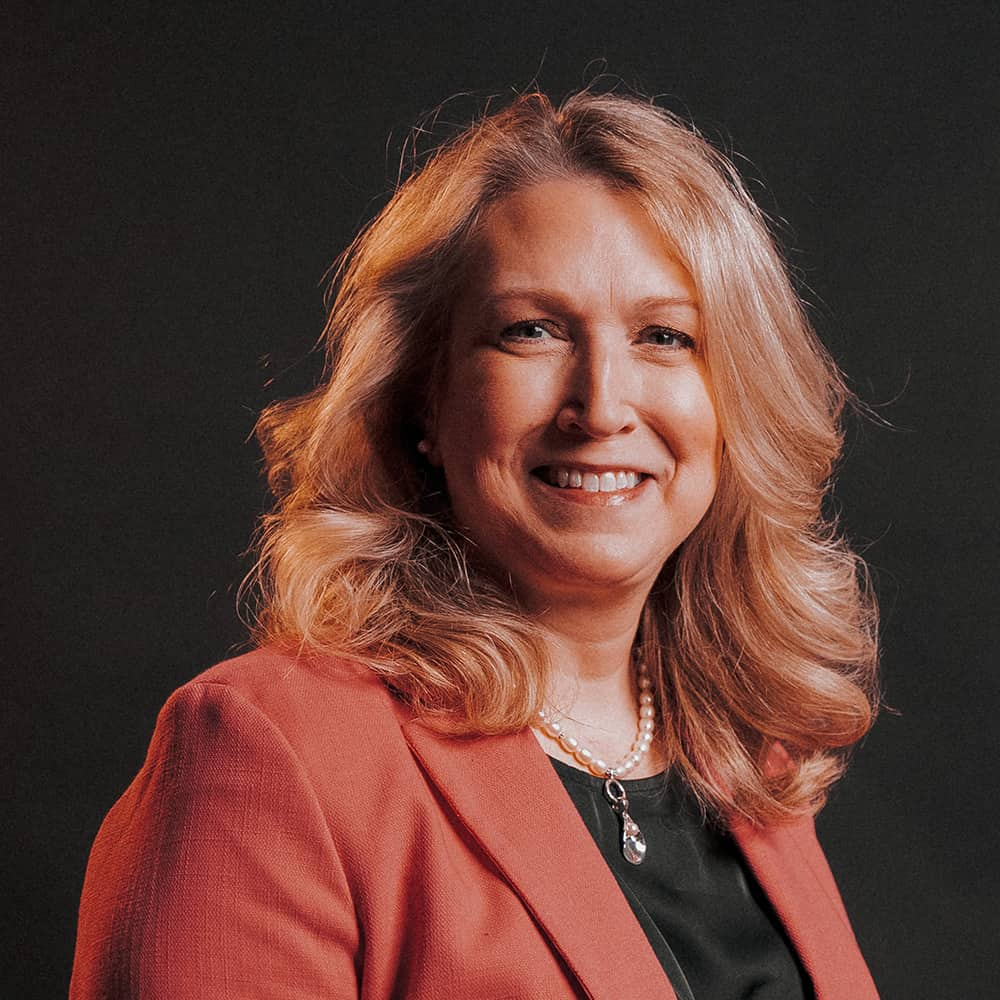Financial literacy is a big deal. Many people may not realize its importance until they make significant life decisions, such as applying for a mortgage or starting to invest for retirement.
As a credit union, we’re committed to investing in the financial wellness of our communities. That’s why we brought in our vice president of community relations, Dawn Gonzales, to discuss the importance of financial literacy and why you should care about it.
Understanding Financial Literacy
Financial literacy is “your ability to understand financial concepts and act on that knowledge to improve your financial well-being,” says Gonzales.
So, what does it mean to be financially literate? Gonzales says someone financially literate “would, for example, be able to set and stick with a budget, establish an emergency savings account, and build and maintain a good credit score.”
The Core Pillars of Financial Literacy
There is no perfect model for financial literacy. Everyone’s situation is different, so the financial knowledge they put to work will vary. However, there are certain things that everyone should know to achieve basic financial literacy, which can be broken down into four main pillars.
Budgeting and Expense Tracking
Budgeting is an outline for your finances. It tracks where your money comes from and where it goes each month, helping you prioritize your spending and identify areas for savings. As Gonzales states, “Budgeting is not just budgeting. It’s a life skill.”
Saving and Investing Basics
Saving and investing are two different things that can significantly impact your financial future. Saving money helps you build a financial cushion for emergencies or achieve short-term goals. In contrast, investing involves using your money to generate additional income through assets like stocks, bonds, and other investment vehicles.
Gonzales explains that your ability to save and invest “affects how you’ll reach your goals and grow your wealth.” And no, you don’t have to set aside hundreds of dollars each month or become a Wall Street guru to make it happen! Choosing the right savings account and acquiring a basic understanding of investing can positively impact your financial journey.
Managing Debt and Credit
Most people will experience some form of debt or credit line at some point in their lives, such as student loans and credit cards. Responsible use of debt and credit lines is crucial for building a good credit score, which can help you purchase a car or obtain a mortgage. “Managing your debt and credit wisely is an essential skill that often isn’t discussed enough. When you borrow money, you are obligated to pay it back, and understanding how to do that successfully is very important,” says Gonzales.
Understanding Insurance and Retirement Planning
Financial literacy involves more than spending less than you earn. Insurance plays a significant role in your financial well-being. For example, consider what it would cost to pay out of pocket for car repairs if you were in an accident — without insurance, that expense could be substantial.
Regarding retirement planning, Gonzales emphasizes the importance of starting early. “It’s never too early to begin. Having a solid understanding of how to save for retirement can make a significant difference in whether you retire on time or end up working an extra five years,” she advises.
Why is Financial Literacy Important?
“Financial literacy is important for many reasons!” says Gonzales. Finances impact nearly every aspect of our lives, including the food we eat, the clothes we wear, and the hobbies we pursue.
“Having a solid understanding of budgeting, saving, and managing debt can empower individuals to take control of their money, rather than allowing it to control them,” explains Gonzales.
The Impact on Personal Finance
By prioritizing learning financial literacy, you can make more informed financial decisions, leading to greater economic independence. Gonzales says, “Understanding where your money comes from and where it goes may seem basic, but when you truly grasp your finances, you begin to make different, better choices that help you achieve your financial goals.”
How Financial Literacy Affects Society
Strong personal financial literacy benefits not only you but also society. When more people take responsibility for their financial literacy, everyone can benefit.
Gonzales states, “When more people understand how to budget and manage debt, we will eventually see greater economic stability and a reduction in financial inequality.” With increased financial literacy, unresolved debt will decrease, fewer individuals will fall victim to debt traps and financial scams, and society will become more adept at managing money.
This responsibility doesn’t fall solely on individual shoulders. For example, schools and workplaces are great avenues to emphasize the importance of financial education. Many schools may already have a financial literacy curriculum in place. In 2021, Nebraska added a state law intended to improve students’ personal finance skills, which requires high school students to take a half-credit personal financial literacy course to graduate and the incorporation of financial literacy into each public school district’s K-8 curriculum. Now, Nebraska is ranked first in financial literacy in the nation. Gonzales points out that this vital step in teaching financial literacy “can also be supplemented by parents teaching kids the importance of money throughout their childhood.”
The need for financial literacy expands beyond the classroom. Engaging employees in financial literacy programs is an excellent way to keep their knowledge current and encourage ongoing learning.
Common Challenges in Financial Literacy
Like learning anything, financial literacy isn’t always easy. Financial circumstances and limited access to financial literacy resources can significantly influence one’s understanding of finances.
Why Many People Struggle with Financial Literacy
Financial literacy involves knowing common financial terms, the basics of financial products, and how to implement these into one’s financial situation. That’s a lot of work!
“Finances can be daunting, and many people mistakenly think they need to be financial experts to manage their money effectively. That’s not the case,” advises Gonzales. “You don’t need to delve into the technical aspects of financial products. Just learn the fundamentals and seek assistance from a trusted financial institution for the rest.”
Many individuals struggle to understand financial topics for several reasons, including:
- Limited exposure to financial situations
- Insufficient access to reliable financial education resources
- Feeling overwhelmed and unsure of where to begin
- Procrastination
- Absence of a supportive network
Consequences of Financial Illiteracy
The saying “out of sight, out of mind” can lead to financial trouble when it comes to your finances. Financial illiteracy may result in serious consequences, such as accumulating higher debt, maintaining a poor credit score, facing challenges in building wealth, and struggling to plan for retirement.
Gonzales emphasizes that financial illiteracy “must be addressed. Ignoring it will not solve any problems. And when considering the future, an individual’s financial illiteracy has the potential to impact generations to come.”
How to Improve Your Financial Literacy
Being illiterate can lead to a variety of problems. The good news is that financial literacy is a learnable skill — it’s never too late or too early to start!
Practical Steps to Enhance Your Financial Knowledge
Here’s some ways you can improve your financial literacy:
- Attend free financial education workshops, seminars, or webinars.
- Take advantage of free online educational platforms from trusted sources.
- Read books and articles about finances.
- Seek professional guidance! There is nothing wrong with asking for help from a licensed financial counselor.
Gonzales says that “all these options are a great place to start to take control of your finances. Remember that learning about finances is continual — you’ll always learn something new!”
Check out our blog and financial education center, Enrich, for easy ways to expand your financial literacy today. If you’d like personalized advice from a certified financial counselor, we also offer free financial counseling services to our members.
Federally Insured by NCUA.




